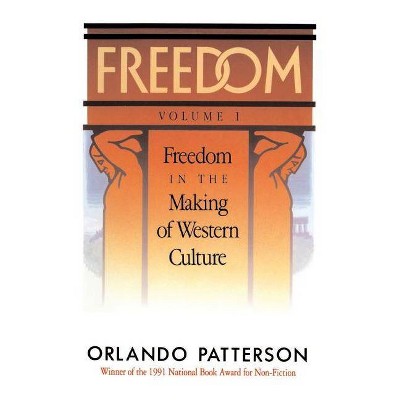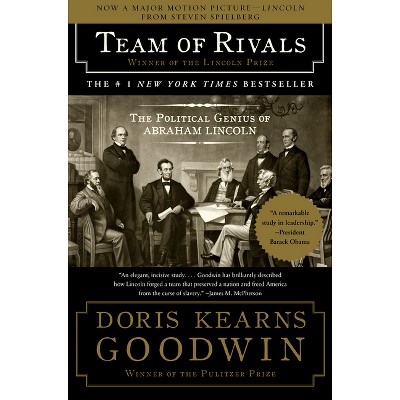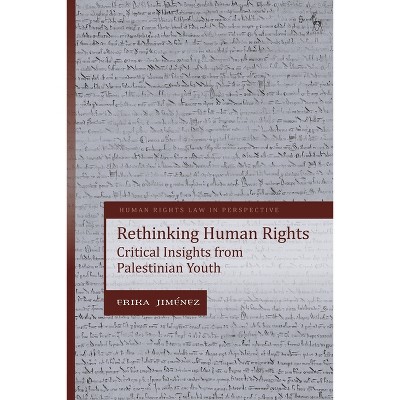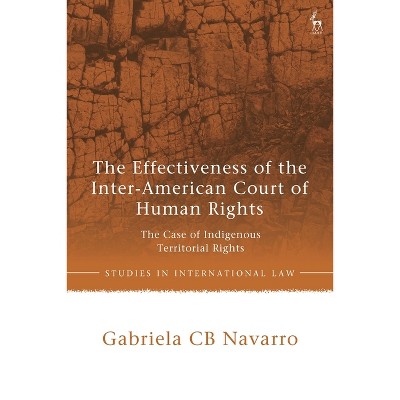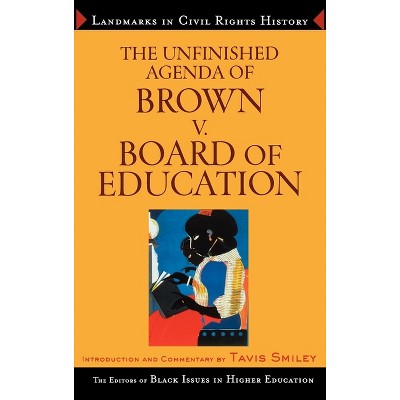Sponsored

Workers' Rights as Human Rights - by James A Gross (Paperback)
In Stock
Sponsored
About this item
Highlights
- Until recently, the international human rights movement and nongovernmental organizations, human rights scholars, and even labor organizations and advocates have given little attention to worker rights as human rights.
- About the Author: James A. Gross is Professor of Labor Law and Labor Arbitrator at the School of Industrial and Labor Relations, Cornell University.
- 288 Pages
- Freedom + Security / Law Enforcement, Labor & Employment
Description
About the Book
Until recently, the international human rights movement and nongovernmental organizations, human rights scholars, and even labor organizations and advocates have given little attention to worker rights as human rights. James A. Gross finds, however...
Book Synopsis
Until recently, the international human rights movement and nongovernmental organizations, human rights scholars, and even labor organizations and advocates have given little attention to worker rights as human rights. James A. Gross finds, however, that employers, not just governments, have the power to violate workers' rights. Workers' Rights as Human Rights provides a new perspective on the assessment of U.S. labor relations law by using human rights principles as standards for judgment. The authors also present innovative recommendations for what should and can be done to bring U.S. labor law into conformity with international human rights standards. This volume constitutes a long overdue beginning toward the promotion and protection of worker rights as human rights in the United States.
Review Quotes
"Gross supplies background by explaining that the 1935 National Labor Relations Act (the Wagner Act) established democratic procedures for participation of workers in determining their wages, hours, and working conditions. Although not using the term human rights, 'the Wagner Act was far ahead of its time in applying human rights principles to US workplaces.'"--Future Survey 25:10, October 203
"If you don't understand why the freedom to form unions and bargain collectively is, and should be, a fundamental human right--which the United States fails miserably to protect--then please read this important book."--Sheldon Friedman, Economist, AFL-CIO, and Past President, Industrial Relations Research Association
"James Gross's introduction provides an excellent frame for discussion of workers' rights. He points out the present-day need to defend workers' rights and places the issue in a civil-rights context."--Clyde W. Summers, University of Pennsylvania
"The first book-length exploration I am aware of to take seriously the notion that workers have fundamental rights which might be protected under international law. . . . Several well-documented chapters outline relevant provisions in the Universal Declaration of Human Rights and the treaties and standards adapted by the International Labour Organization that "guarantee" workers' rights to form and join unions of their choice, and to engage in activity in defense of their economic and political interests. These rights are not restricted to officially certified or recognized unions--indeed, a strong case can be made that imposing such structures is itself a violation of international law. Rather, it is quite clear that the right to form unions was meant to be inalienable, covering minorities as well as majorities. And, indeed, in most of the world unions have the right to represent their members, even if those members make up but a small portion of the total workforce."--Jon Bekken, Industrial Worker, March 2004
"The place of human rights in US labor policy is the subject of this volume, whose dominant theme is that economic rights are as important and as universal as political rights and worthy of the same protections. . . . Summing Up: Recommended. Comprehensive labor studies collections, upper-division undergraduate and up."--Choice, January 2004
"This book provides as clear an introduction to the arguments for linking human rights to worker rights as one is likely to find. It also forces thought on what evidence would be necessary to accept the human rights approach as the most effective method for improving labor conditions."--Robert J. Flanagan, Stanford University, Industrial and Labor Relations Review 57:4, July 2004
"Workers' rights are crucial to human rights. Where the former are not existent or are weak, the latter are inevitably in jeopardy. This fine and long overdue book reveals the shameful distance between pretense and reality in respect to worker rights in the United States."--Julius Getman, Earl E. Sheffield Regents Chair, University of Texas School of Law
About the Author
James A. Gross is Professor of Labor Law and Labor Arbitrator at the School of Industrial and Labor Relations, Cornell University. His other books include Broken Promise: The Subversion of American Labor Relations Policy, 1947'1994, the last in a trilogy dealing with the National Labor Relations Board, and Teachers on Trial: Values, Standards, and Equity in Judging Conduct and Competence, also from Cornell.
